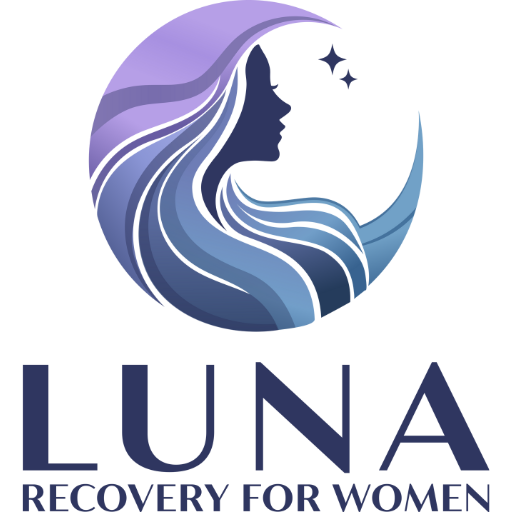Relapse is often considered a stumbling block in the journey toward lasting recovery. Whether you’re recovering from substance use, disordered eating, or another challenge, the emotional toll of “starting over” can be overwhelming. However, relapse does not erase the progress you’ve made; rather, it provides an opportunity to reevaluate what works, identify personal triggers, and recommit to your well-being. At Luna Recovery for Women, we believe that relapse—though painful—can serve as a pivotal turning point, guiding you to a stronger, more sustainable recovery.
Understanding Relapse
Before diving into how Luna Recovery can help you overcome a relapse, it’s important to understand the concept itself. A relapse isn’t just a moment of “slipping up.” It can be a series of choices or stressors that gradually weaken your resolve. Common triggers include:
- Emotional Stress: Anxiety, grief, or relationship conflicts can make relapse more likely.
- Environmental Cues: Certain places, social groups, or habits can resurrect old patterns.
- Untreated Mental Health Issues: Co-occurring disorders like depression or trauma can sabotage even the most committed recovery efforts.
Understanding your triggers is the first step in defending against a relapse. By working with professional support systems like Luna Recovery, women learn how to recognize these risk factors and develop coping strategies that align with their unique needs.
Why Women-Focused Recovery Matters
Women face distinct challenges when it comes to recovery. Hormonal fluctuations, cultural expectations, and family roles often intertwine with personal identity, making the recovery journey more complex. Women-focused programs such as Luna Recovery provide safe spaces that address these gender-specific issues. Here, you’ll find:
- Peer Support: The bond of shared experiences among women fosters deep empathy and understanding.
- Tailored Treatment Plans: Sessions and workshops focused on issues such as body image, motherhood, or relationship dynamics.
- Empowered Community: A nurturing environment that encourages vulnerability, open dialogue, and personal growth.
When you’re in a community that understands the multifaceted nature of women’s recovery, it becomes easier to break down stigmas, share openly, and build resilience.
Luna Recovery’s Approach to Relapse
At Luna Recovery, we view relapse not as a failure but as a signpost. It’s a wake-up call that indicates you may need additional support or a new strategy. Our holistic, women-centered approach includes:
- Reassessment and Goal Setting
After a relapse, our first step is to help you process what happened. Together, we’ll look for patterns, triggers, and thoughts that preceded the lapse. Based on this assessment, we’ll adjust your treatment plan to reflect your current state of mind and wellness goals. - Therapeutic Support
From individual counseling to group therapy, our licensed professionals are trained to address both the emotional and physical aspects of relapse. We use evidence-based therapies like Cognitive Behavioral Therapy (CBT) and Dialectical Behavior Therapy (DBT) to help you build healthier coping mechanisms. - Mind-Body Healing
Relapse can be emotionally draining and physically taxing. We offer a range of holistic activities—such as yoga, meditation, and art therapy—to help you reconnect with your body and mind in a positive, nurturing way. - Peer and Mentorship Programs
One of the most powerful tools in recovery is community. Our peer-led support groups provide a space where you can hear from others who have navigated similar challenges. Mentorship opportunities also allow you to learn from women who have experienced relapse and come out stronger on the other side. - Post-Treatment Support
Recovery doesn’t end when you leave our program. Luna Recovery continues to support your journey with aftercare plans that include ongoing therapy, community support groups, and regular check-ins to help you navigate real-world stressors.
Tips for Navigating Relapse
- Practice Self-Compassion: Speak to yourself with kindness and understanding. It’s normal to feel guilt or shame—acknowledge those feelings, but don’t let them dictate your self-worth.
- Reach Out for Help: Whether it’s a friend, therapist, or support group, lean on others. Isolation often fuels relapse, so staying connected is crucial.
- Refine Your Coping Strategies: If a coping technique isn’t working anymore, explore new tools. Something as simple as journaling or going for a walk can make a significant difference in your emotional state.
- Set Boundaries: Protect your progress by being selective about who and what you allow into your life. Healthy boundaries can shield you from unnecessary stress and temptation.
- Create a Vision Board: Visualizing your goals and dreams can reignite your motivation and remind you of the life you’re striving to build.
Embracing the Next Chapter
A relapse doesn’t define your story—it’s merely a chapter in a larger narrative of growth, resilience, and transformation. At Luna Recovery for Women, we aim to empower you to see beyond the stumble and embrace the lessons it can teach. By offering a women-centered environment, holistic therapies, and unwavering support, we help you move forward with renewed hope and determination.
Remember, recovery is a journey of progress, not perfection. If you or a loved one is struggling with relapse, consider reaching out to Luna Recovery for Women. You deserve the chance to heal, reclaim your life, and step into a future defined by strength and possibility.


